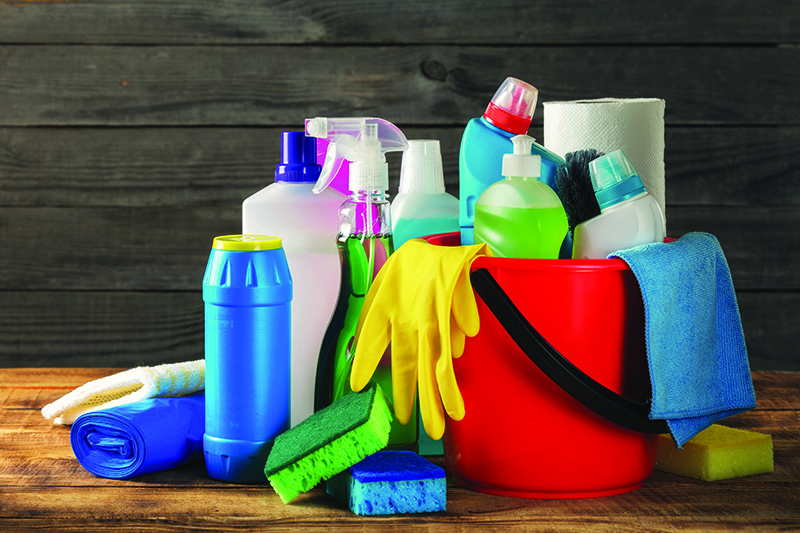Good indoor air quality is essential for the health and well-being of everyone in a household. Breathing in clean air helps prevent respiratory issues, allergies, and other health problems. We often focus on external factors such as pollution and allergens. But it’s important to know that the cleaning products we use can also affect indoor air quality. This article will discuss common cleaning products that can impact air quality. We also suggest alternatives that promote both cleanliness and healthy indoor air.
The Importance of Good Indoor Air Quality
Breathing clean air is crucial for maintaining a healthy home environment. Poor indoor air quality can lead to various health issues. These include allergies, asthma, and irritation of the eyes, nose, and throat. Long-term exposure to these pollutants can even lead to more severe health conditions.
Indoor air quality is particularly important for vulnerable individuals. These include children, the elderly, and those with pre-existing respiratory conditions. Maintaining good indoor air quality ensures the safety of everyone in your home.
Common Cleaning Products That Affect Indoor Air Quality
Many conventional cleaning products contain volatile organic compounds (VOCs) and other harmful chemicals. These can impact indoor air quality and can affect your health and well-being. These chemicals can enter the air during use, contributing to indoor air pollution. Some common cleaning products that may affect indoor air quality include:
- All-purpose cleaners. All-purpose cleaners often contain harsh chemicals like ammonia, chlorine, and phosphates. These chemicals can release VOCs, which can cause respiratory irritation and allergic reactions.
- Aerosol sprays. Aerosol sprays can release fine particles and VOCs into the air. Examples of aerosol sprays include air fresheners, furniture polish, and oven cleaners. These particles and chemicals can worsen indoor air quality. Some may even become harmful when inhaled.
- Bleach. Bleach is a powerful disinfectant. It also releases chlorine gas, which can irritate the respiratory system. This poses a risk to lung health, especially in areas with poor ventilation.
- Fragrance-based products. Many cleaning products contain synthetic fragrances. Some of these products include laundry detergents, fabric softeners, and dryer sheets. These fragrances often contain VOCs. These can contribute to poor indoor air quality and trigger respiratory symptoms.
Substitutes for Better Indoor Air Quality
Not all cleaning products are bad for your home’s indoor air quality. There are ways for you to clean a home without worsening indoor air quality. Consider using the following substitutes.
- Natural or homemade cleaners. Look for natural cleaners or make your own. Look for ones using vinegar, baking soda, lemon juice, and essential oils. These options are effective, non-toxic, and good for the environment.
- Microfiber cloths and steam cleaning. Microfiber cloths are effective at capturing dust and dirt without chemical cleaners. Steam cleaning is another excellent option. It uses hot water vapor to sanitize surfaces without the use of harsh chemicals.
- Ventilation and air purification. Ensure proper ventilation throughout your home. Open windows, use exhaust fans, and maintain a healthy airflow throughout your home. You can also consider investing in an air purifier with a HEPA filter. This can help to remove airborne pollutants and improve indoor air quality.
Contact Us
Maintaining good indoor air quality is crucial for the health and safety of those in your home. Be mindful of the cleaning products you use. Many conventional cleaners contain chemicals that can create poor indoor air quality. Choose natural or homemade alternatives. Use microfiber cloths and steam cleaning, and ensure ventilation and air purification. With these tips, you can have a clean home while promoting a healthy indoor environment. If you need help improving your indoor air quality, contact us today. We can help you with all your HVAC system needs.

